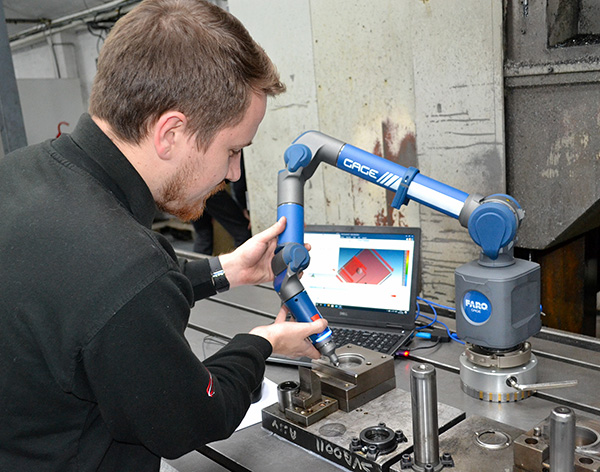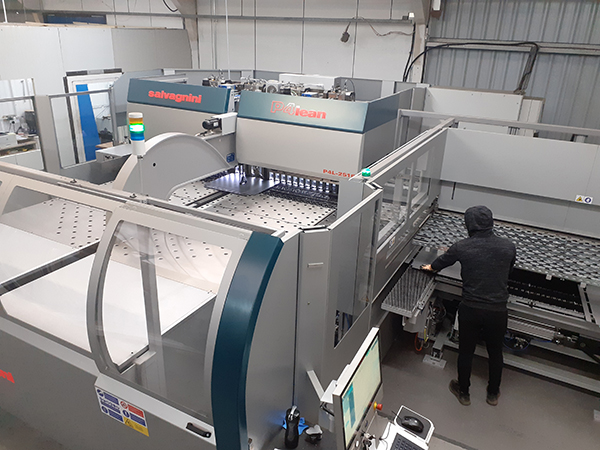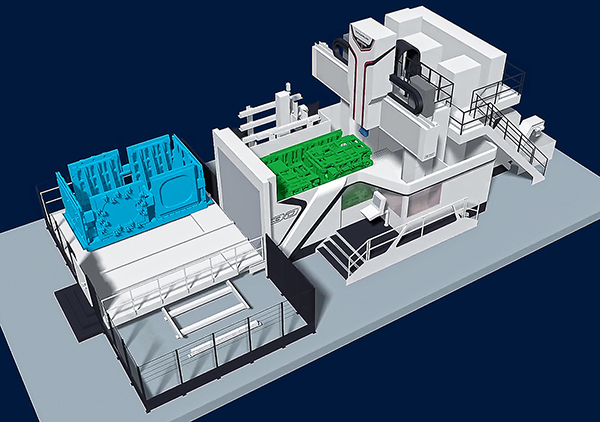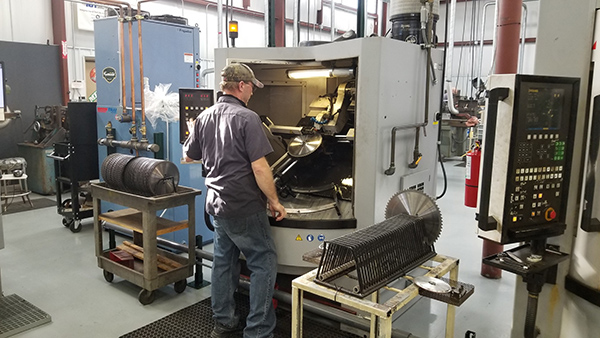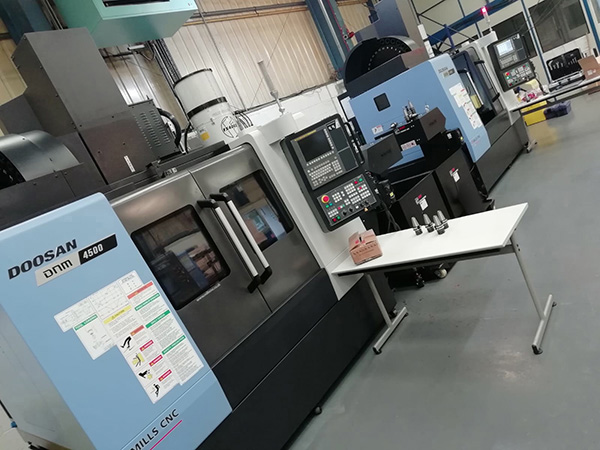
When faced with the need to find high-precision, flexible measuring devices that could satisfy the challenging inspection needs of two company divisions, Stuart Hill, development engineer at AM Hydraulics, communicated each division’s diverse requirements to Faro UK and requested demonstrations of suitable portable CMMs.
In the course of the subsequent in-house demonstrations, the speed, precision and capacity of Faro’s Quantum-M 3D ScanArm proved it to be the ideal portable inspection solution for AM Hydraulics’ large components. Likewise, when measuring the relatively smaller workpieces for the company’s AM Tooling division, the recently launched Faro Gage measuring arm confirmed its accuracy specification, in addition to its quick set-up and ease of use abilities. The outcome of these successful demonstrations was an order for both Faro products.
Trading since 1978, AM Hydraulics has continuingly expanded and is now a major force in the UK hydraulics manufacturing sector. Areas served by this progressive, family owned business include aerospace, nuclear power, earthmoving, oil and gas, and wind power.
Based in a recently opened, purpose-built manufacturing facility in Birmingham, AM Hydraulics offers an all-embracing, ‘one-stop’ service. The company’s end-to-end production capabilities include milling, finish grinding and hard chrome plating. In addition to meeting challenging delivery deadlines, AM Hydraulics’ level of autonomy enables adherence to rigorous quality control standards.
As an ISO9001-accredited business and an approved supplier to many blue-chip companies, the quality of AM Hydraulics’ output is of paramount importance. In addition to undertaking final inspection routines, dedicated quality inspectors make detailed in-process checks at every stage of production. Given the size (up to 3000 mm diameter) and weight (up to 20 tonne) of the company’s workpieces, administering an efficient in-process quality regime presents a range of challenges.

Now in use at AM Hydraulics, the Faro Quantum-M ScanArm is designed to deliver outstanding levels of inspection precision in less than pristine environments, such as on the shop floor. The robust Faro product carries certification to ISO 10360-12:2016, a rigorous international measurement quality standard, and tests to IEC 60068-2 standards for shock, vibration and temperature stress relief.
In addition to performing efficient tactile inspection tasks, the Quantum-M ScanArm is able to undertake precise, non-contact scanning routines thanks to the use of its Faro Blu Laser Line Probe HD. Faro’s next generation of blue line laser technology enables five times faster scanning than previous models, even when used on complex surfaces comprised of dark or reflective materials.
When compared with its predecessor, the Quantum-M ScanArm is 20% lighter in the hand and, as it requires no warm-up time, is always ready to use. These qualities ensure improved levels of productivity by enabling operators to work longer and more comfortably.
The use of industrial-grade wireless connectivity and dual, hot-swappable batteries supports the Quantum-M ScanArm’s data-transfer capabilities and its continuous operation in remote areas of the factory floor without the need for external power.
Explaining AM Hydraulics’ improved inspection efficiencies, Hill says: “Given the size of our workpieces we chose a Quantum-M ScanArm with a 2.5 m capacity, and it has proven ideal. In addition, as it’s easily transportable and quick and simple to set-up, it helps that our operators can carry the Quantum-M ScanArm to all of our production areas and quickly put it to work carrying out detailed inspection work using its touch probe or non-contact laser probe. Although our staff are experienced in using precision equipment, given the nature of the production areas, it helps that the Quantum-M ScanArm is so tough.

“In addition to delivering the levels of speed, accuracy and capacity we sought for our large parts, the Quantum-M has significantly reduced our inspection data capture times,” continues Hill. “Staff are now able to instantly download collected data, store it directly to a computer and compare it against nominal CAD data.”
Equally challenging, although different in scale, are the inspection requirements of the business’ AM Tooling division. AM Tooling specialises in the manufacture, assembly and repair of press tools, as well as providing a jig and fixture design and manufacturing service.
“Along with accelerating AM Tooling’s inspection work and data flow, the Faro Gage has enabled us to increase our precision capabilities,” explains Hill. “Also, as it’s so flexible, the Gage has helped to lessen our reliance on hand tools, such as calipers and height gauges, and reduce the use of numerous measuring instruments spread around the shop floor. Our Faro Gage is now making a major contribution towards upholding AM Tooling’s demanding quality standards.”
As the most accurate and affordable FaroArm ever produced, the recently launched Faro Gage is suited to performing inspection tasks on small to medium size components. The intuitive and versatile portable CMM boasts a 1.5 m working volume and a volumetric accuracy of 0.022 mm. Thanks to the Gage’s performance for hard probing applications, it is able to eliminate inspection bottlenecks and greatly reduce reliance on fixed CMMs.
Says Hill: “The success of both AM Hydraulics and AM Tooling is due largely to the quality of each division’s output and their efficiency levels, which allow competitive quotes to be tendered and business to be won. To make sure that we maintain these advantages, we regularly invest in state-of-the-art production and inspection technologies.
“Our two co-located divisions share the same passionate quality culture, although given the difference in their manufactured products, each has very specific inspection requirements,” he adds. “Therefore, when a decision was taken to make a major investment in portable inspection equipment, as an enthusiastic user of previous generations of Faro products, I related each division’s inspection requirements to Faro UK.
“On witnessing detailed, in-house demonstrations of a Faro Quantum-M ScanArm and a Faro Gage, I was very impressed by the latest developments and convinced that each suggested solution ticked each division’s precision and efficiency boxes. Our two new portable inspection technologies provide us with a major advantage over the use of a fixed CMM as, along with final inspection, we are able to use them to perform in-process checks on workpieces that remain located in machine tools.”
For further information
www.faro.com







